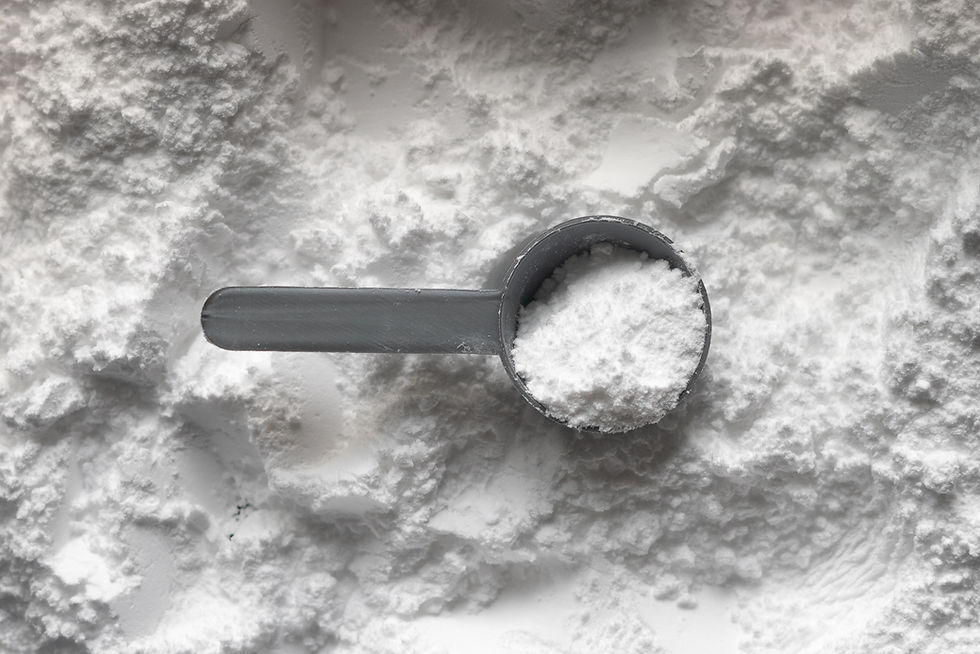The Benefits of Outsourcing Supplement Production
- CLS

- Jul 7, 2025
- 3 min read
Updated: Jul 15, 2025
The health and wellness industry has seen a significant rise in demand for dietary supplements over recent years. Brands looking to capitalize on this trend face the critical decision of how to produce their products. One effective solution is outsourcing supplement production. This approach offers a wealth of benefits that can enhance efficiency, reduce costs, and improve product quality.
Understanding Outsourcing Supplement Production
Outsourcing supplement production involves hiring an external manufacturer like CLS Manufacturing to handle the creation of products, in this case, nutrition supplements. This strategy allows brands to focus on the operations and other areas of the business while leveraging the expertise and resources of established manufacturing partners. Outsourcing is a strategic decision that can have huge benefits.

Cost Savings and Economies of Scale
One of the biggest benefits of outsourcing supplement production is cost savings. Making everything in-house means covering the cost of equipment, paying staff, and handling all the overhead—it adds up fast. But when you outsource, you can take advantage of manufacturers who already have the tools, team, and setup to do it efficiently and affordably.
By partnering with an established supplement manufacturer like CLS manufacturing, brands can benefit from reduced production costs and the ability to meet larger orders without the large upfront investment. This route can ease financial pressure, allowing companies to reinvest savings into marketing, research, and development.
Access to Expertise and Quality Assurance
Outsourcing to CLS Manufacturing a specialized supplement manufacturer means entrusting your product to experts in the field. These manufacturers typically have years of experience in producing a wide range of supplements, from liquid electrolyte concentrates to powder protein products. Our knowledge of industry regulations and quality standards ensures that the products made under their supervision meet strict safety and efficacy requirements.
For example, the FDA has specific guidelines for dietary supplements. A contract supplement manufacturing partner will be well-versed in these regulations, minimizing your risk of compliance issues that can arise from in-house production.

Focus on Core Business Activities
Outsourcing allows brands to concentrate on their primary business activities. When production is handled externally, businesses can redirect valuable resources toward marketing, sales, and product development. This shift can significantly enhance operational efficiency and enable faster time-to-market for new supplements.
By leveraging the expertise and resources of a manufacturing partner, businesses can focus on creating innovative products, establishing brand loyalty, and meeting customer demand. This agility can be a game-changer in a competitive market.
Flexibility and Scalability
The dietary supplement market can be volatile, with fluctuating demands and seasonal trends. By outsourcing production, businesses gain the flexibility necessary to adapt quickly to these changes. Contract manufacturers can adjust production levels based on current market demands without requiring companies to invest in additional equipment or staffing.
For instance, if a new supplement becomes trendy, businesses can ramp up production swiftly without the headache of managing in-house production lines. Conversely, during slower periods, companies can either scale back production or launch new products without the burden of overstocking.

Risk Management
Outsourcing supplement production can also help mitigate risks associated with manufacturing. In-house production includes various operational risks, such as equipment failure, supply chain disruptions, and regulatory compliance issues. These risks can lead to delays and increased costs.
In contrast, external manufacturers often have established solutions for risk management. They can handle unexpected challenges, maintain consistent supply chains, and ensure compliance with regulatory standards. By relying on their expertise, businesses can enjoy peace of mind, knowing that their products are being handled by specialists who prioritize reliability and safety.
Conclusion: Embracing the Future of Outsourcing Supplement Production
The decision to outsource supplement production brings a variety of advantages, from cost savings to enhanced focus on core business activities. Companies are better positioned to navigate the complexities of the dietary supplement market by leveraging the expertise of specialized manufacturers. Embracing this approach can lead to improved product quality, increased efficiency, and ultimately, greater customer satisfaction.
In today’s competitive landscape, outsourcing is not just an option but a smart strategy. As the demand for dietary supplements continues to rise, now is the time for companies to explore how they can benefit from working with established partners in the manufacturing space. For those ready to take the leap, you can start looking into options for contract supplement manufacturing today.



Comments